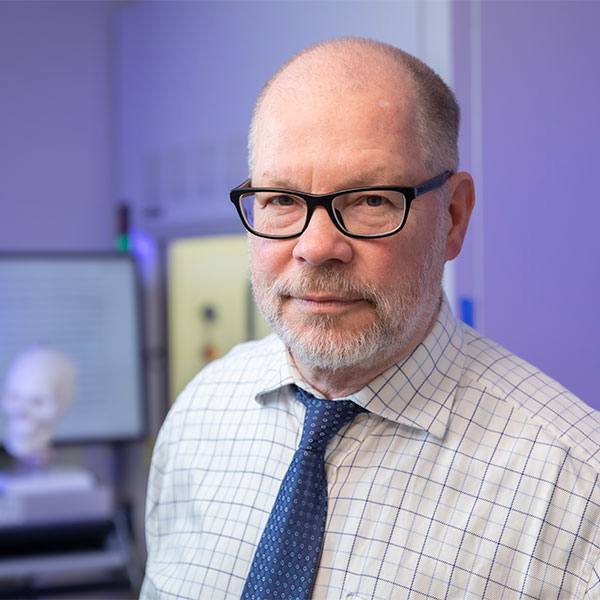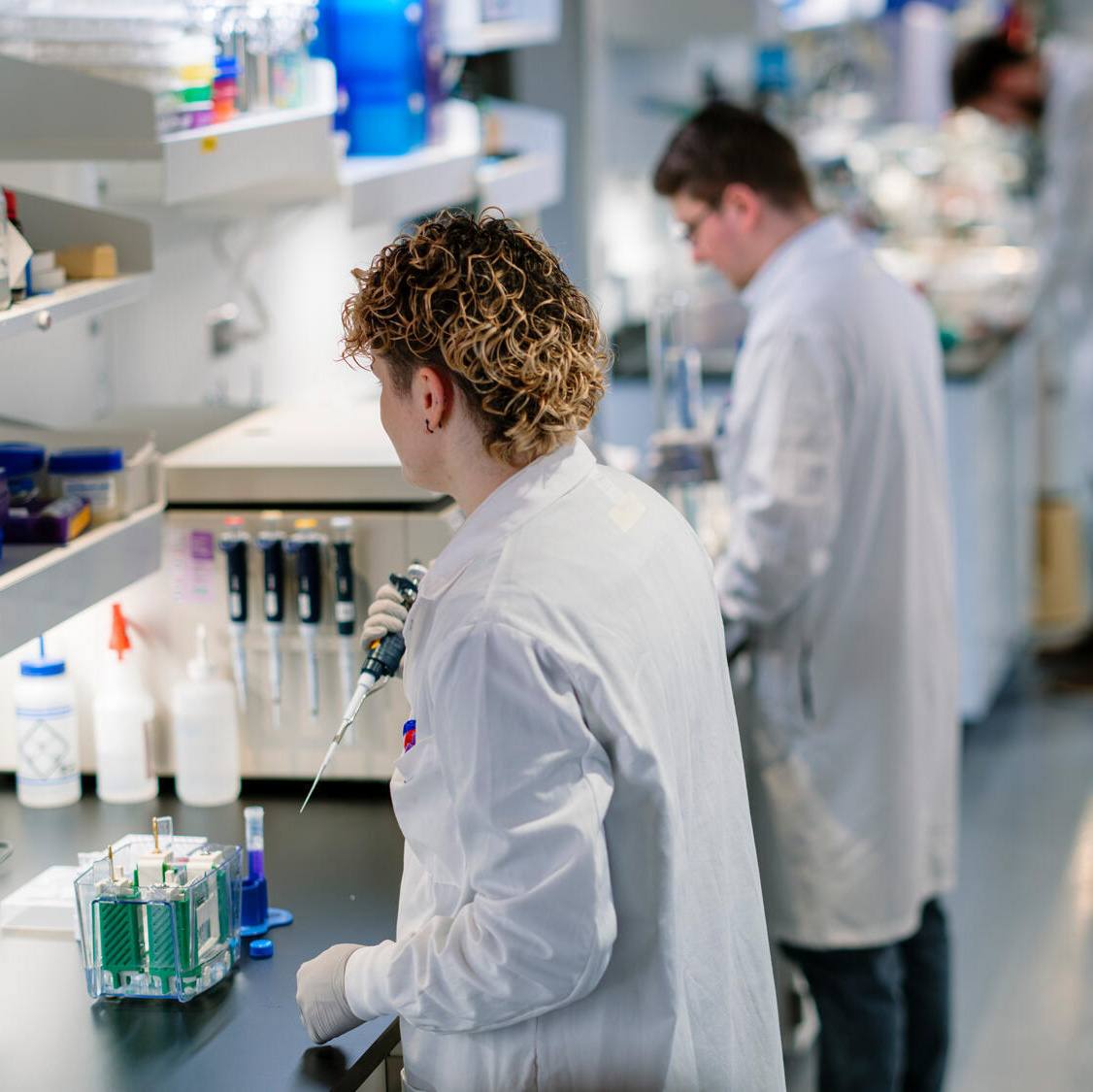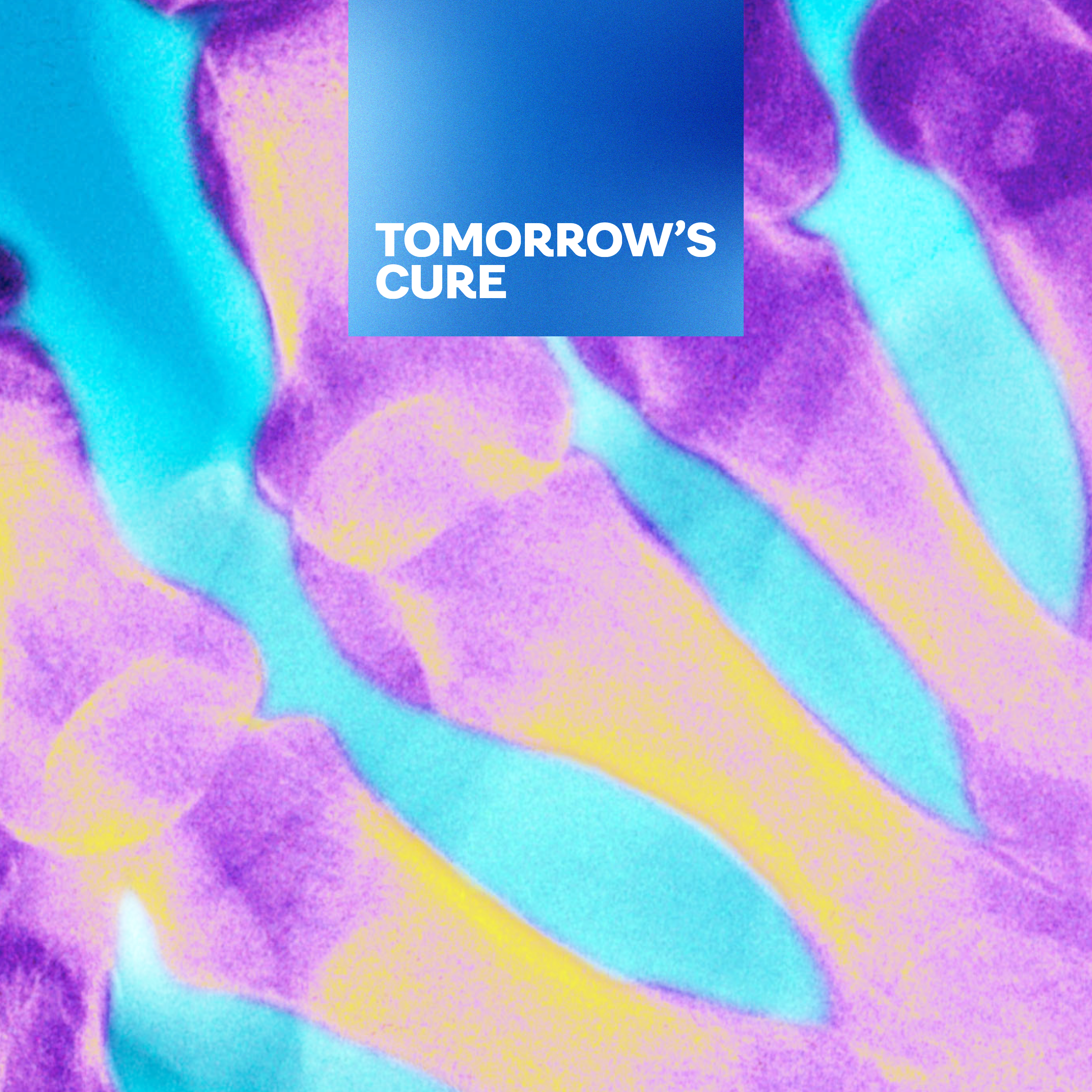-
Research
Mayo’s Individualizing Medicine Conference highlights innovative new era of health care

Health care is experiencing a trailblazing phase of innovation, with individualized medicine at the forefront. The driving forces behind the transformation are technological advancements, omics discoveries and the emergence of direct-to-patient clinical trials.
"We're really moving into an exciting new era where we're increasingly designing therapeutics specific for individual patients, expanding access and truly impacting health outcomes," Eric Klee, Ph.D., told attendees at Mayo Clinic's 12th Annual Individualizing Medicine Conference, held on May 5-6th in Ponte Vedra Beach, Florida. Dr. Klee is the Midwest Associate Director of Research and Innovation at Mayo Clinic's Center for Individualized Medicine.
Bringing clinical trials to a patient's doorstep
The conference, titled "Direct-to-Patient Omics-Based Clinical Trials," featured two dozen leading scientists and industry experts who shared their latest research, discoveries and translations. Cathy Wurzer, host of "Morning Edition" for Minnesota Public Radio, moderated the conference.

At the heart of the conference, several speakers highlighted innovative new ways of bringing clinical trials directly to a patient's home environment. The new and emerging health care strategy, facilitated by advances in technology, is helping to guide the development of more impactful clinical interventions for everyone.
"The potential is huge. It's giving us the ability to deliver more cures and to achieve health equity by improving clinical trial access — especially to those underrepresented populations and underserved communities," Tufia Haddad, M.D. told attendees in her opening conference presentation. Dr. Haddad is a Mayo Clinic medical oncologist and serves as a leader for Mayo Clinic's digital strategy in clinical trials.
Dr. Haddad shared that nearly 16% of all Mayo Clinic hematology/oncology patient appointments are now conducted via telehealth phone or video visits, and more than 47,000 patients with cancer have experienced Mayo Clinic's remote patient monitoring program, called Electronic Patient Reported Outcomes, since its launch in 2019. She says early results are positive.
"We're seeing that just by changing how we deliver care can improve a cancer patient's survival," Dr. Haddad explained, highlighting new research data.
In another clinical trials-related presentation, Alexandra Berk, Ph.D., director of Clinical Trials Services at CVS shared that the retail pharmacy has ventured into the clinical trials space with the use of real-world data and real-world evidence.
Real world data is health information collected from various sources in the real world, including hospitals, clinics and pharmacies. Real-world evidence provides a broad view gleaned from the real world data and can reveal the effectiveness of certain treatments in diverse patient populations. Traditionally, health data have often been collected in laboratories.
"I think real world data is one of the most impactful research tools of our time. This has the potential to significantly accelerate the drug development pathway," Dr. Berk told attendees. "With continued regulatory support, we will see potentially huge increases in the speed, efficiency and patient centricity of clinical trials moving forward."
Enhancing diversity in clinical trials
Many researchers emphasized the need to address health equity by improving access to clinical trials, reducing barriers and promoting preventive care.

Health equity was a main topic of keynote speaker, 'Lola Fashoyin-Aje, MD, deputy director in the Division of Oncology at the U.S. Food & Drug Administration. Dr. Fashoyin-Aje shared details of her efforts to improve access to clinical trials of oncology medical products and cancer drug development for populations that have historically been underrepresented in clinical research.
She shared recent FDA data that shows the representation in clinical trials is currently 81% white, 2% Black/African American and less than 1% Native American/Alaskan Native. She emphasized that new therapies must be evaluated in the context of the population for which they are intended.
"Diversity really helps us to characterize drug effects in the context of a diverse population and that really benefits us all," Dr. 'Lola Fashoyin-Aje said. "I think there's this idea that including underrepresented populations in clinical research helps that population or helps those specific populations. But it's really important to understand that there are no characteristics of a disease or even drug effects from a particular medical product that are exclusive to any group based upon race or ethnicity or geographic location."
Harnessing the power of technology
Conference researchers showcased an array of digital advancements — from artificial intelligence and real-world data to wearable devices and telehealth.
Arjun Athreya, Ph.D., a computer scientist within Mayo Clinic’s Molecular Pharmacology and Experimental Therapeutics, shared details of his ongoing digital health studies that involve wearable technologies. In one study, where he collaborates with Mayo Clinic psychiatrists, Magdalena Romanowicz, M.D.; Julia Shekunov, M.D.; and Paul Croarkin, D.O., M.S., Dr. Athreya has built an artificial intelligence algorithm to derive digital biomarkers from a smartwatch to study the potential preemption of disruptive behavior in children.

"And the idea here is that one in every four children is diagnosed with some behavioral problem and if untreated, these children are at elevated risk for other mental health disorders," Dr. Athreya said. "With the biomarker derived from the smartwatches, we could alert the parent or caretaker that their child is about to experience an episode of disruptive behavior such as uncontrolled tantrum."
In another NIH-funded study, Dr. Athreya is leading an enterprise-wide effort to develop AI algorithms to study nurse burnout by integrating data related to physiological, psychological and workplace factors.
"We want to provide a simple prognostic statement that says that your sleep has reduced, the workplace acuity has increased, and the absenteeism rate has increased. So therefore, this unit and this individual could be at a higher risk of burnout in the next quarter," Dr. Athreya explains.
Decoding the blueprint of diseases with omics
Several conference speakers shared how omics advancements are pushing precision medicine forward, particularly related to cancer treatments. Omics is the study of how genes, proteins, metabolites, and other molecules work together to impact health and disease.
John Woog, M.D., Mayo Clinic Emeritus, shared his personal journey of facing advanced stomach cancer starting in 2007, and how omics — particularly proteomics (the study of proteins) — played a crucial role in his treatment and survival.
"The important role of proteomic studies in guiding therapy in my situation supports the approach being pursued by scientists and clinicians here at Mayo and elsewhere," Dr. Woog said. "The pursuing analysis of multiple omics in conjunction with genomics is important to determine what pathways to target in the care of individual patients with cancer."
Jim Cerhan, M.D., discussed his use of epidemiologic approaches to study the causes and outcomes of cancer in human populations. Dr. Cerhan is a professor of epidemiology in the Mayo Clinic College of Medicine and Science and the Ralph S. and Beverly Caulkins Professor of Cancer Research.
"We need to keep our eye on a population approach to cancer prevention because that's where we get the biggest benefit, but we need to blend this with more targeted high-risk approaches that precision medicine can bring to the table now with all the new discoveries and technologies," Dr. Cerhan said.
The conference also featured a Rare Storyteller's event that highlighted Mayo Clinic patient, Lisa Miller's rare disease experience.
As always, the annual conference emphasized the importance of collaborations and data sharing to accelerate discoveries into clinical practice and improve patient outcomes.
The 13th annual Mayo Clinic Individualizing Medicine Conference will take place on Sept. 11th &12th, 2024 in Rochester, Minnesota.
Learn more
Read more stories about advances in individualized medicine.
Register to get weekly updates from the Mayo Clinic Center for Individualized Medicine blog.
Join the conversation
For more information, visit Mayo Clinic Center for Individualized Medicine, or Twitter at @MayoClinicCIM.








